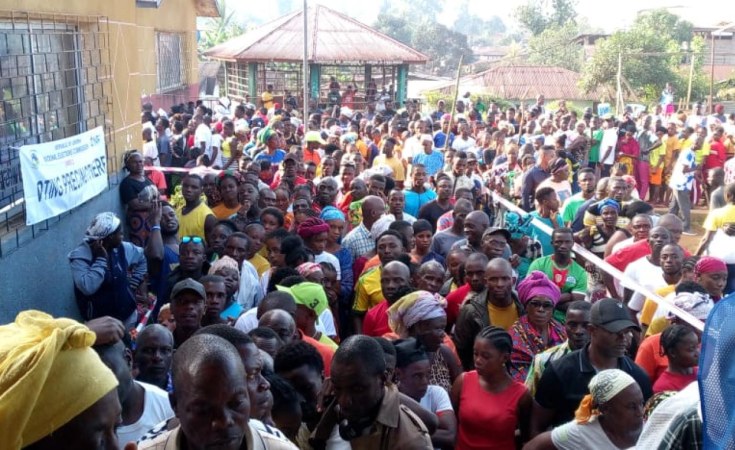In a bid to ensure the integrity and fairness of the upcoming elections, the Liberia Immigration Service (LIS), in collaboration with the Joint Security, has taken the decision to temporarily close the country's borders as Liberians go to the polls on Tuesday, October 10.
This precautionary measure, according to Danny B. Sartee, LIS Director for Operations, aims to prevent any potential influx of aliens who may seek to manipulate or interfere with the voting process. The move underscores the commitment of the government to uphold democratic principles and protect the rights of its citizens.
The borders are officially closed from 6 p.m. Monday, October 9, to noon on Wednesday, October 11, the Joint Security Committee has said.
"We want the public to know that the borders are secured. We have men at the borders that are on joint patrols with our counterparts from neighboring countries," Sartee said at a dialogue on electoral security organized by the Center for Democratic Governance (CDG) in Monrovia on Monday, October 9. "Must time there is an influx of aliens who come into the country to take advantage of the electoral process, and we have been working assiduously to avert this."
He said the LIS is collaborating with its Sierra Leonean, Guinean, and Ivoirian counterparts to ensure that the country's borders are secured on Election Day. "We have been collaborating with our counterparts to ensure that the borders are secured as we conduct the elections tomorrow," the LIS Director, who is responsible for border management, said.
In any democratic nation, free and fair elections are vital to maintaining the integrity of the political system, and the closure of the borders during this critical period acts as an additional layer of security to safeguard the electoral process against potential external interference.
By preventing the entry of other nationals, Joint Security is working to reduce the risk of unwanted manipulation and ensure that the voice of the people remains untainted.
Members of the Joint Security at the CDG's forum on Electoral Security
The decision to close the borders on the eve of elections is not taken lightly, Sartee noted, as it is done to prevent undue influence. During the 2020 senatorial elections, there were acts of violence in the border county of Grand Cape Mount, reportedly triggered by reports of people crossing over from neighboring Sierra Leone to partake in the elections.
"We have been talking to the chiefs, elders, and youth leaders of the neighboring towns and villages against allowing their people to interfere in our electoral process," the LIS boss told the CDG forum. "We don't want them partaking in our electoral process."
He said the Joint Security Patrols have also been educating people along the borders about the status of the borders--when they will be closed and when they will be opened, especially before, during, and after the elections.
He said the collaborative efforts with the neighboring countries have been enhanced by a sisterly relationship. "We share information that is germane to the operations of both countries. He said.
Meanwhile, the temporary border closures in the lead-up to elections are not unique to any single nation. They are commonly employed globally to ensure the security and sanctity of electoral processes. This practice aligns with international norms and demonstrates a commitment to protecting the nation's democratic values. It sends a strong signal to both domestic and international stakeholders that the government places a high priority on preserving the integrity of its electoral system.


